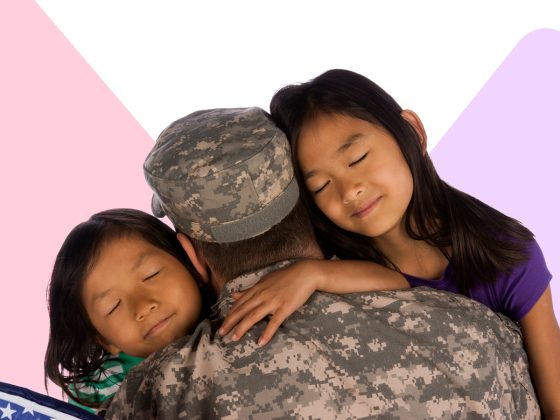
It’s a Journey: First Steps
Understanding that caregiving is best taken one day at a time can help everyone take challenges “in stride.”
Embracing your role as military caregiver isn’t always simple. Big feelings like uncertainty and even grief come and go. Some days will be difficult, but caregiving, especially when the whole family is “in it together,” can be so rewarding. Understanding that caregiving is a journey best taken one day at a time can help everyone take challenges “in stride.” Consider these ideas as you take stock of what your caregiving journey may look like.
Grieving Is Part of the Process
Working together, your family can rise up to overcome any challenge. But first, it’s important to give everyone space to grieve and feel the many emotions that come with big life changes. Although your loved one is still with you, you may find yourself experiencing feelings of loss. There are many kinds of loss—of independence, control, roles, the future as you’d imagined it would be.
Each member of the family may grieve differently and at a difference pace. Grief may go away briefly, return, and then go away again. When faced with waves of grief, adopt a mantra. For example: We’re going to be fine. We’re still a family. We will heal.
My grief is like the ocean,
And today I am the beach.
Wave after wave falls upon me;
Each one changes my shape.
I am renewed with every swell of water.
Through It, Not Around It
The challenges of caregiving are best faced head-on. If you or your loved one has trouble seeking or accepting help, remember that asking for help is often necessary, and always a brave step. You are not the only ones going through this. Many have before. You can learn from them. Many will follow. You can help them. And many are beside you right now. You can lean on them when times are hard.
- Seek professional help. Depression, traumatic brain injury (TBI), and posttraumatic stress disorder (PTSD), among others, require particular care that only professionals can provide.
- Take note. Depending on the injuries of your loved one, you may need to learn how to perform relatively complex medical procedures. You are part of a health team, and your closeness to your loved one is an asset. To help, you can share what you know with doctors, take notes during appointments, and share what you know or notice with your health care providers.
- Reach out. Joining a support services group on social media may open pathways to new friendships and resources. And, you can explore these helpful links to get started.
Here and Now
Caregiving may be temporary, but it may also last a long time. When having to re-learn skills that one had mastered before, it is easy to fixate on the past. It is also common to wonder about the future and worry about what changes may lie ahead. But as a veteran caregiver, embracing the present can help. After all, present moments and daily actions are adding to your family’s story.
- Be present. Being present can be as simple as noticing your breath. Bring your thoughts back to who you are today with deep breathing exercises.
- Remember what you can do. Focus on the things you can do now by making a list of “Things I can do.” Include everyday achievements like getting out of bed, taking a shower, or getting dressed. A walk outside can also be a big step forward for you and your family. This can be helpful for you as well as your children.
- Practice gratitude. Collect your “Things I can do” to witness how your journey changes, and to appreciate how far you’ve come. You might be surprised by the things you and your family can accomplish.
At the end of the day, every family has different needs, and you know yours best. Build a “new normal” that works for your family. And, if you can, embrace the uncertainty. When you set out on a journey, it’s impossible to know everything you’ll face. But detours often make trips interesting. Plus, every bend and curve in the road helps you and your child grow stronger, smarter, and kinder.
References:
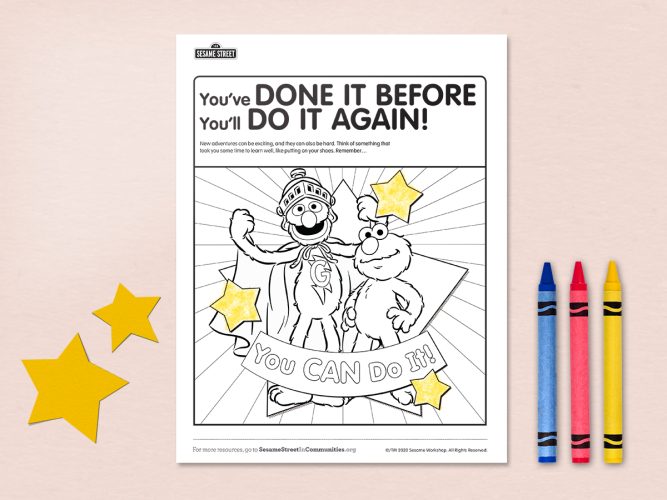
You’ve Done It Before, You’ll Do It Again

Practice I Notice, I Feel, I Can
Try this three-step plan to help the whole family manage feelings big and small.
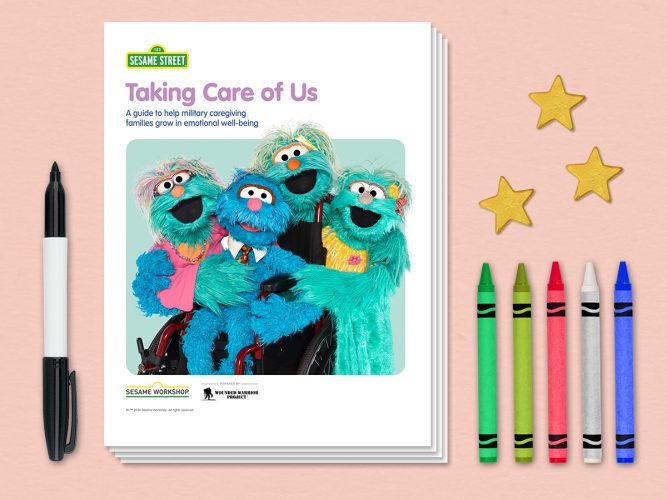
Taking Care of Us: A Guide to Help Military Caregiving Families Grow in Emotional Well-Being
A guide with information and activities to help military caregiving families learn about and grow in emotional well-being together.
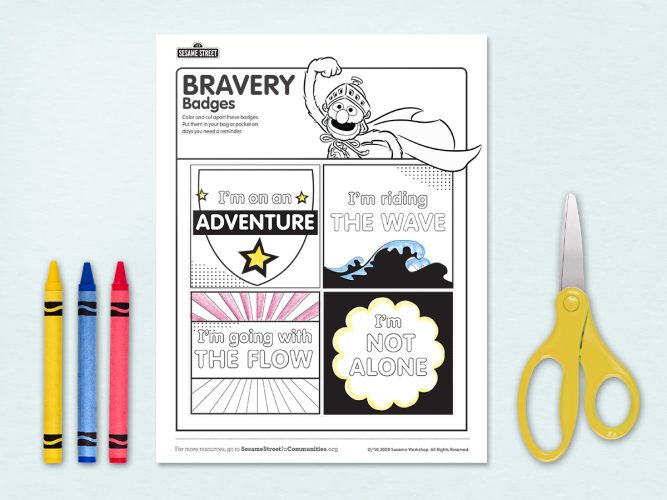
Bravery Badges
Sometimes we all need a reminder that we're courageous.
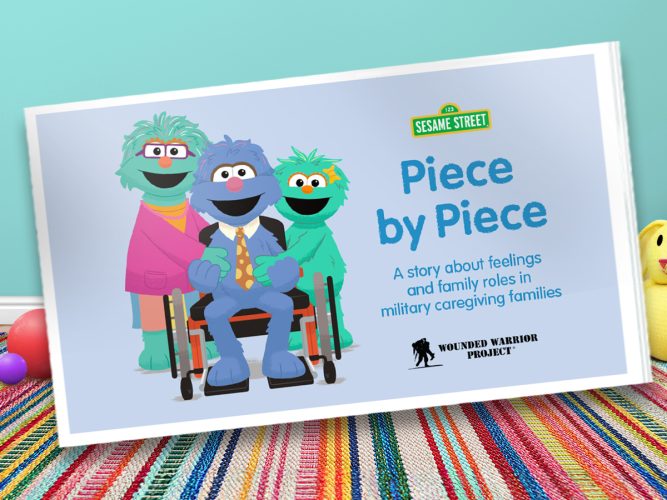
Piece by Piece
A storybook, featuring Rosita and her family, about the special strength of military caregiving families.
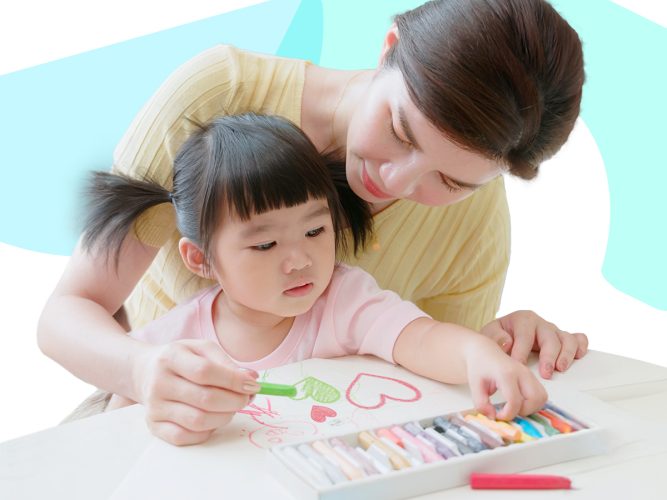
Compassion in Daily Moments
Simple ideas to help adults and children practice self-compassion in daily life.
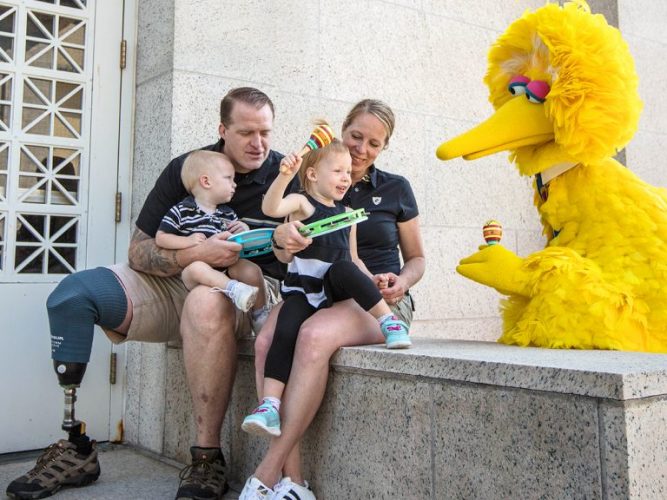
Supporting Caregiving Families
A guide to help providers support military and veteran caregiving families.
